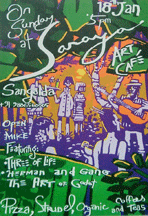By Dr. Walter Fernandes
Much will be written about Mother Teresa on her birth centenary on August 26, 2010 and for many days after it. Questions will be asked about her legacy. In fact many have asked that question already. Some have already said that her work was not really charitable, that it was done for conversion, to save her own soul and for other objectives. Others have said that at a time when the country was burning immediately after the Partition, she thought only in terms of relief to the victims of injustice and did not fight against those whose corruption reduced the refugees to an inhuman state.
Many of those who make such statements forget the context of her founding the Missionaries of Charity. With it is ignored also her understanding of human rights. Obviously she did not understand human rights in their present form. A simple woman that she was, with no claims to an intellectual understanding of the world around her she could only think in terms of her experiential love for the poor. The context of her work was the Partition refugees of 1947. She saw hundreds of them dying of starvation and disease because of lack of good rehabilitation and neglect. Its main reason was corruption among those who took charge of their rehabilitation.
The young nun appointed to teach in an elite English medium school felt the stench of death when she visited the slums regularly. Relief was the only solution she could think of in this desperate situation. For that she took the risk of leaving the convent in order to bring them relief. However, as she said in a TV interview in New York in September 1975, her priority was to help them to die with dignity. She added that during the half hour she sat in the TV studio before the interview, she saw commercials advertising fat free food and slimming exercises. “The people I am working with do not care whether it is fat free or not. They want to die with dignity as human beings. If I had a choice I would give that food to them.” She could not elaborate this thinking. Such conceptualisation was far beyond her. She only knew that people could not be allowed to die of starvation or amid such stench.
She was probably not capable of elaborating that thinking. She did not understand the meaning of human rights or of the struggles for justice many waged in various parts of the country. But one has to say to her credit that she did not oppose them. She was once told at Kochi in 1989 that she gave a good conscience to the perpetrators of injustice by bringing relief to their victims. She answered that she was capable of relief alone but did not oppose others who fought for justice. Her understanding was limited to what she did. So one has to stop there without necessarily agreeing with her.
Her understanding of her work as a religious duty was clearer than the social role of the relief she brought to the dying. Some have interpreted her statement “I do it for Jesus” to mean that she worked for conversions. Nothing can be farther from the truth. Forgotten is her constant assertion “He sent me to give the good news to the poor.” Though not stated in so many words, it was clear from her other statements that the “good news” she brought to them was relief that gave a sense of dignity to the poor, particularly to the dying. She did not give it an intellectual dimension but she was strong in this belief.
Equally forgotten are her many statements that her work was to help Hindus to become better Hindus, Muslims to become better Muslims and Christians to become better Christians. After relief to the dying she brought relief to abandoned infants by offering them for adoption. In that work, her Sisters were careful to respect the religion of their parents. I myself am aware of at least two cases of the Sisters refusing to let Christian couples adopt the children they wanted because their mothers were Hindus. The adoptive parents were told that the infants had a right to be brought up in the religion of their mothers.
It is in this simplicity that one has to search for the legacy of Mother Teresa. A clear ideological stand on her work was beyond her capacity. So instead of such clarity, one sees in her a commitment to the poor. She was a doer, not a thinker. She considered it her duty to serve the poor. The means she knew was relief. She was a simple soul who did not elaborate her thinking. She went where relief was required.
In the context of the Partition and the stench of death that was the lot of thousands of refugees in Kolkata because of corruption she assisted them to die with dignity. She was not ready to allow them to die of neglect. They had a right to die as human beings. As need arose she extended that help also to the infants who were in danger of being abandoned.
She never asked why they were abandoned and who was responsible for it. They were deprived of their dignity and she provided relief to them. She never gave discourses on justice or structural violence. All that she knew was that they deserved to die as human beings. When she saw infants abandoned by their parents, she knew that they too had a right to live as human beings. She did not have an understanding of human rights but she knew that human beings had a right to the minimum dignity. So at a time when human rights of the poor are violated with impunity her legacy is her stand that human beings have a right to die with dignity.
The author is Director, North Eastern Social Research Centre, Guwahati.
| < Prev | Next > |
|---|
















